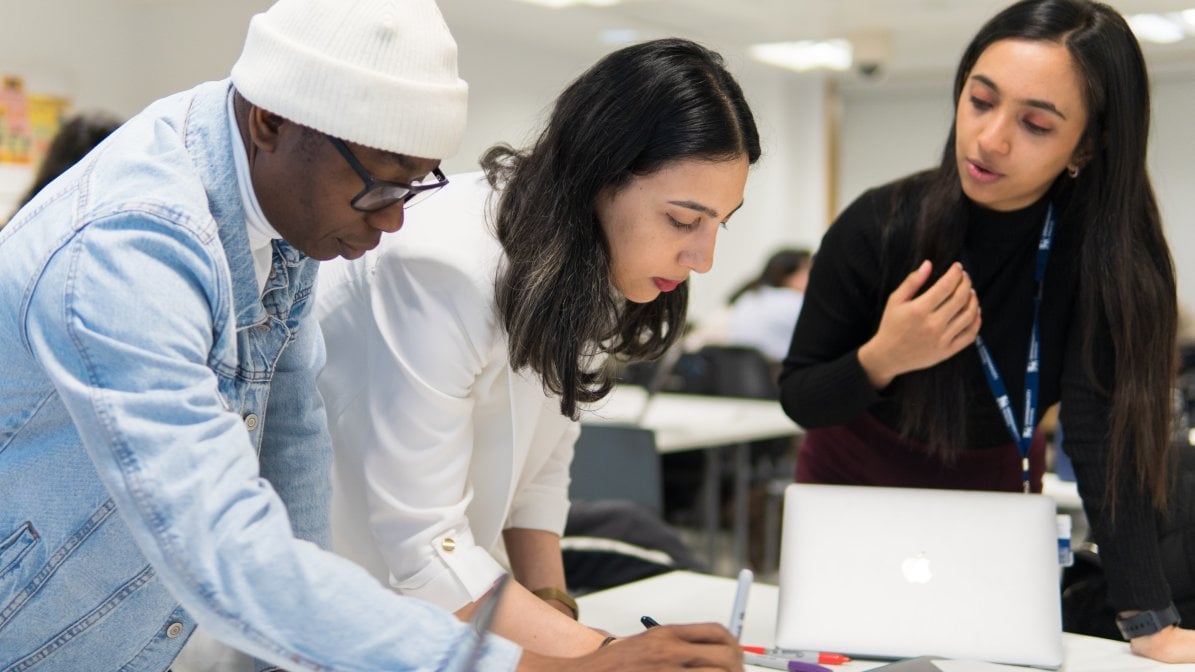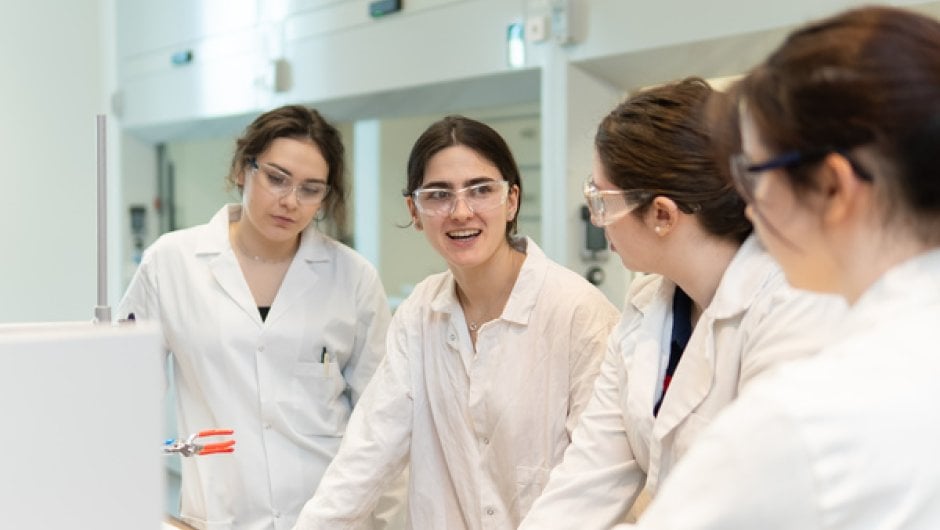As an optometrist you’ll be trained to examine the eye, to detect and diagnose any abnormalities and diseases, and to prescribe glasses or contact lenses. You’ll be working very closely with patients, using your empathy and customer service skills. Optometry is different to ophthalmology, where you’d perform surgery on eyes.
Optometry is a growing profession in the UK, and graduates tend to work in hospitals, opticians, or larger retail stores. You could also be community-based or later choose to specialise in an area like sports vision or working with children, or study further and specialise in areas like glaucoma research or diabetes. You could also travel and be part of a team setting up quality eye care facilities in countries where health facilities are limited.
The impact you could make
- Detect a squint in a young child’s vision and prescribe the right pair of glasses
- Spot the signs of diabetes early and save someone’s eyesight
- Volunteer for a charity and help people manage their sight loss
What you could study
- Biology of the human eye and supporting structures
- Biology of the retina and visual pathways
- Visual optics, refraction, and binocular vision
- Clinical practice and communication
- Diagnostic techniques
- Principles of spectacle dispensing
- General and systemic pathology
- Physiology and microbiology
- Pharmacology, ophthalmology, and ocular therapeutics
- Ocular disease
- Visual neuroscience

Discover careers in the NHS
The NHS offers a variety of careers in the optometry sector. Discover roles in the NHS and the different ways to get started on your future career.
Find out more
Example module
Example project
Subjects it's useful to have studied first
Some optometry courses or apprenticeships will have requirements for previous qualifications in certain subjects.
Biology
Chemistry
Maths
Physics
Label
Skills you’ll develop
Hard skills you'll develop
- Use precision tests and instruments
- Patient examination
- Clinical decision-making
- Disease detection and/or referral
Soft skills you'll develop
- Communication
- Sales
- Customer service
- Problem-solving
- Leadership
Careers: Where it can take you
Find out more about your career prospects from studying optometry. The following information is based on a typical ophthalmic optician role.
Available jobs
Average salary
Career options
Optometry

What is a… medical science liaison?
You may never have heard of a medical science liaison – sometimes also called a medical manager, medical scientific adviser, or ‘medical affairs’ – but they work for pharmaceutical or biotechnology companies, advising medical professionals on the use of their company’s equipment or medicines. As an optometry liaison, you might give clinical optometrists information and data about specific drugs, or on how to use new diagnostic devices. You’ll often need clinical experience first before you undertake these roles.
Find your ideal career
Take our careers quiz to find your ideal job matched to your personality type.Getting in: Entry requirements
Find out more about what you'll need to study optometry at university or as an apprenticeship.
Average requirements for undergraduate degrees
Entry requirements differ between university and course, but this should give you a guide to what is usually expected from optometry applicants.
A levels
Scottish Highers
Vocational
Optometrists can make a big difference to people's lives. They are trained to examine the eyes to detect defects in vision, signs of injury, ovular diseases or abnormality, and problems with general health. They use their skills and knowledge to improve vision and diagnose and manage a range of eye conditions. They can also alert patients to life-changing and life-threatening illnesses such as diabetes, high blood pressure or a brain tumour.
The ability to help people and correct their vision, which is very rewarding. Creating strong bonds with patients and colleagues too. Getting as much experience as possible is also enjoyable too.

Health and science apprenticeships
Check out our industry guide to help you decide if a health and science apprenticeship might be right for you.Other subjects you may be interested in
Considering an apprenticeship?
Applying for an apprenticeship is just like applying for a normal job. Here’s what you need to know:
-
1
Deadline
Apprenticeships don't follow the same deadlines as applying to uni, the deadline is down to the employer. -
2
Where to apply
You apply directly through the employer. -
3
No limits!
You're not restricted to one apprenticeship application; you can do as many as you like. -
4
Apply to university and apprenticeships
There's nothing stopping you applying to university through UCAS, while also applying for apprenticeship vacancies. -
5
Find out more
Read our guide to health and science apprenticeships.
Let's talk about... science apprenticeships (Sponsored by Manchester Metropolitan University)
Listen to our brand new podcast all about degree apprenticeships in science. Find out about funding, what day-to-day life is like, making friends, and more from our expert panel.

Apprenticeship vacancies
Check out live apprenticeship vacancies.Explore further
Go deeper into topics around optometry with the following.-
1
How Your Eyes Work
If you want to start with the basics, before you decide this is the subject for you, then watch these YouTube videos from the National Eye Institute about how the eyes work, and various common eye diseases. -
2
College of Optometrists
Follow the College of Optometrists on YouTube to see explainer videos, patient case studies, and updates from the industry. -
3
Association of Optometrists
The student section of the Association of Optometrists website has lots of resources on things like student life, educational articles, and careers advice.
Application advice
Whether it's personal statement tips or what to write in a cover letter for an apprenticeship application, our application advice will help you get ahead in your optometry journey.
Label
Skills, experiences and interests to mention
- Start off with why this subject appeals to you. Try and explain your love of science and learning the intricacies of how something works, or the fact you enjoy working with people and seeing the results of your study in real life situations. Mention any additional reading you’ve been doing too.
- Clinical optometrists are patient-facing, so talk about when you’ve worked in customer service, cared for people, or mentored a year group in school, for example. What qualities do you have that would suit you well when dealing with patients?
- As well as good communication, you’ll need to be able to problem solve, and critically evaluate things. What subjects have you studied at school that required these skills? Can you mention any hobbies or extracurricular activities like brain teasers, Rubik’s cube, or even composing your own music, that require some of these traits?
- Competition is high for optometry graduates looking to secure a pre-registration position, so try and get some relevant work experience. You could get a part-time job with a local opticians, or volunteer in a hospital. Some large retail chains also offer summer programmes that are a great opportunity to gain experience.
- Studying optometry isn’t easy, so show you have some resilience too, and that you’re able to unwind after a long day working or studying.

Personal statement guide
We asked admissions tutors to share their dos and don’ts for writing a strong and engaging optometry personal statement. Here's what they told us.





